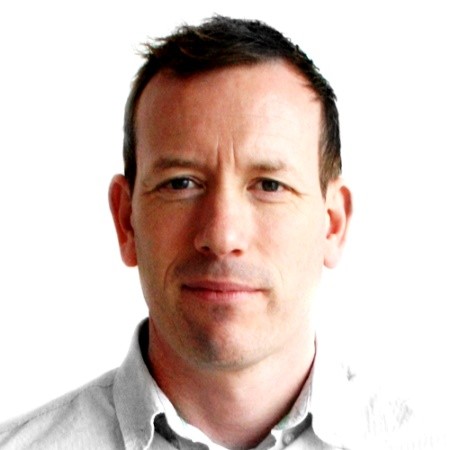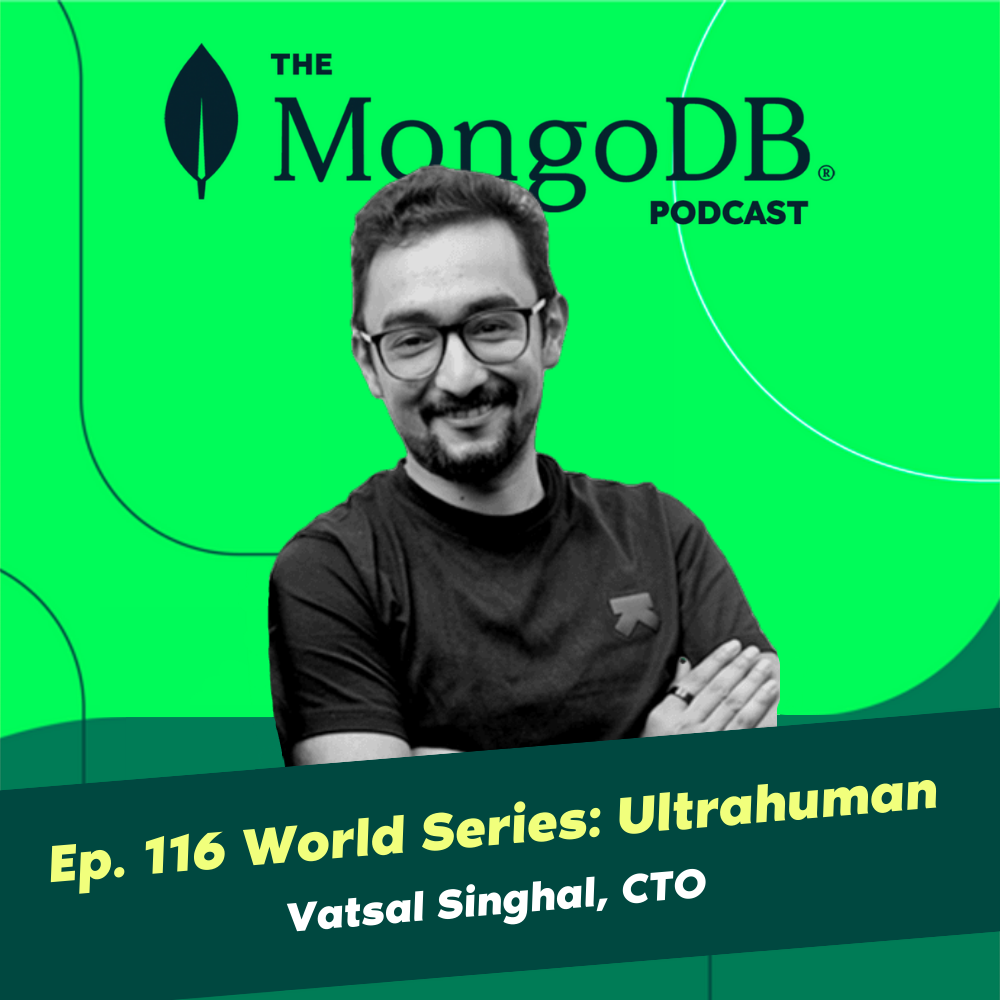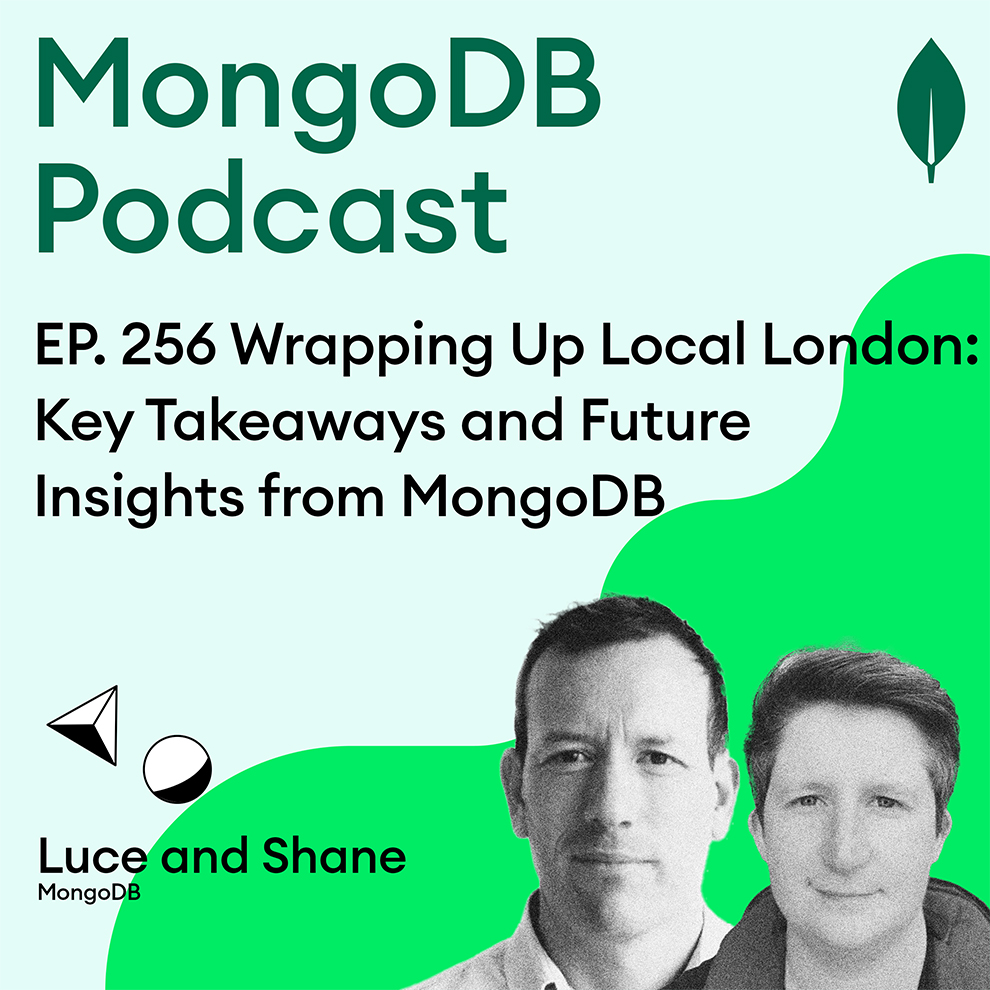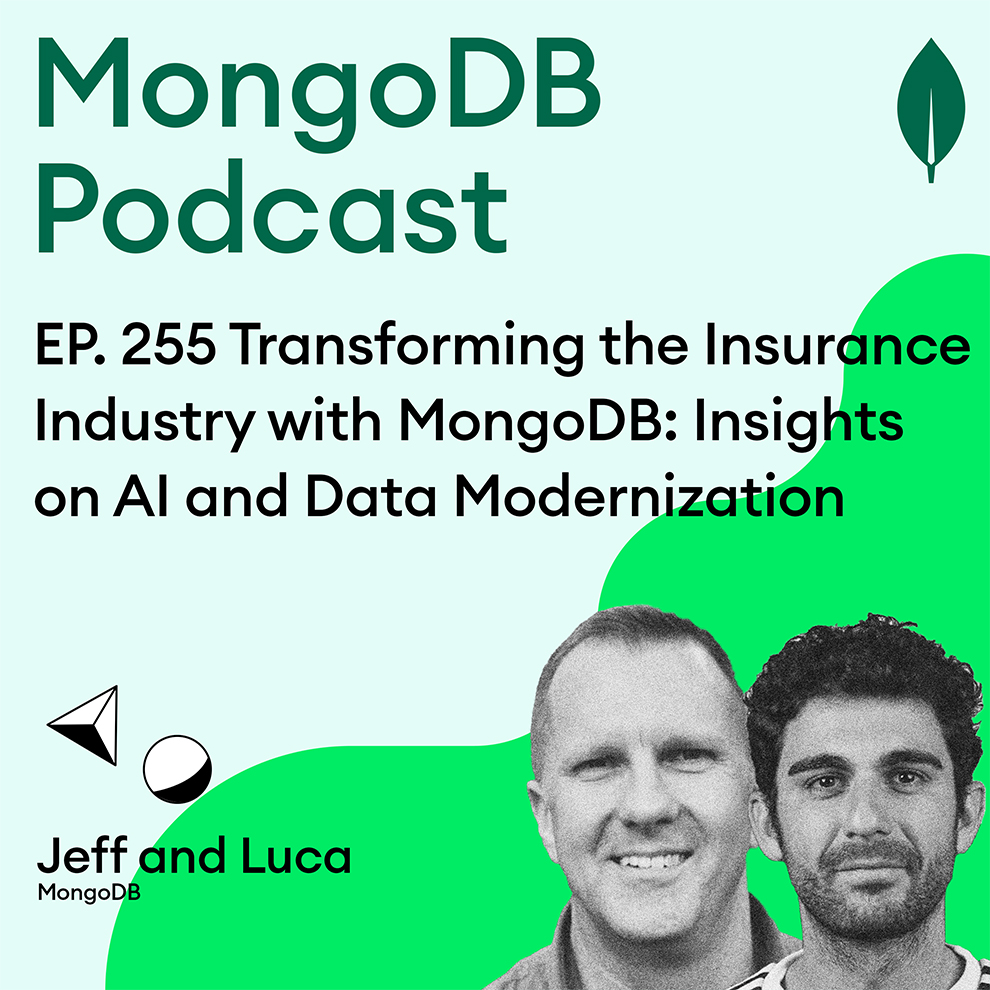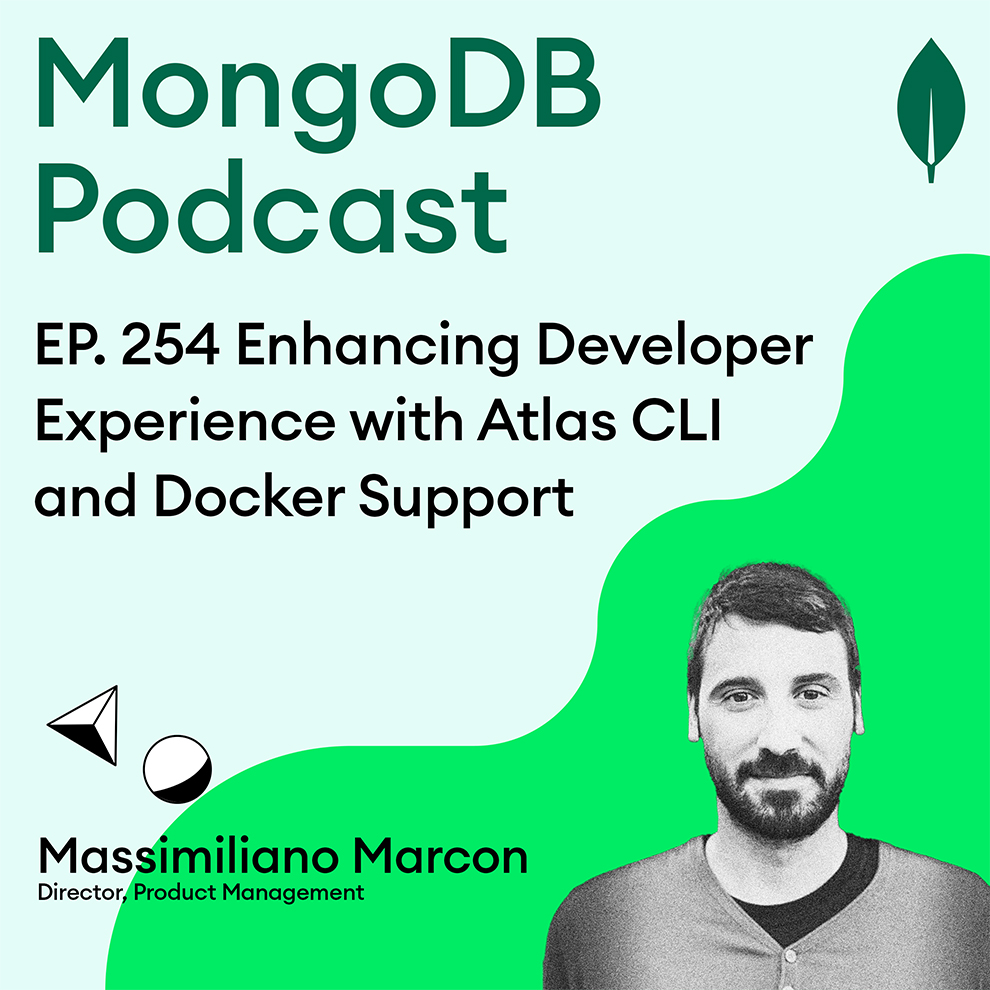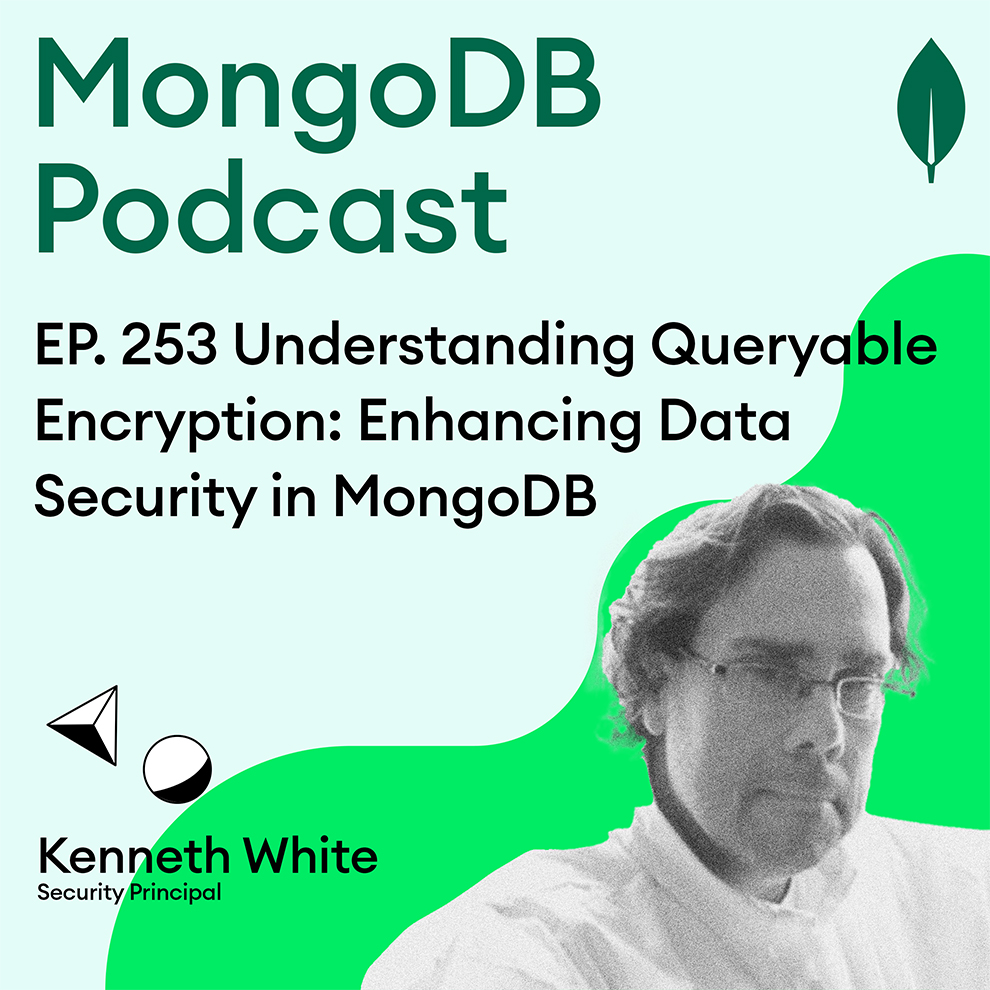Ep. 116 The MongoDB World Series - Vatsal Singhal from Ultrahuman
- 0.5
- 1
- 1.25
- 1.5
- 1.75
- 2
Shane McAllister: Hello everybody, and welcome to the show. Your ears aren't deceiving you. I am not Mike Lynn. That is correct. My name is Shane McAllister. I'm a colleague of Mike's at MongoDB, and he has kindly given over his seat for these and some other future episodes to me, which is great. And I'm very much looking forward to getting part of the MongoDB Podcast. I have been on a few episodes before. My role in MongoDB is looking after developer advocacy for Realm or Mobile products. If you've listened to some of those episodes over the years, you would've heard my voice joining in on those, but I'm not alone on this podcast today. I'm also joined by another new member of the team. So Cedric Clyburn has joined MongoDB as our summer intern, and he's going to be helping out on the podcast and creating content and writing some code and hopefully doing lots more in developer relations. So, welcome Cedric.
Cedric Clyburn: Hey, thank you, Shane. How you doing?
Shane McAllister: I'm good. I'm good. It's good to have somebody else on board as well too, without the guiding hand of Mike. So you've come on board, our intern program for the summer here. You're based in the US. What were you studying and what brings you to MongoDB?
Cedric Clyburn: Absolutely. Yeah, I'm going to be working as the developer advocacy intern for this summer. Super, super excited. I study computer science at NC State University in Raleigh, North Carolina. And I heard about MongoDB beforehand. We'd used it in one of my class projects. We used a Mongo stack. So when I saw the opening for a developer advocacy internship, I hopped on board with that. And yeah, now it's amazing. I'm working in New York City for the summer. First time being up here.
Shane McAllister: Good adventure?
Cedric Clyburn: Good adventure, good people. And most importantly, good pizza.
Shane McAllister: Good, good, good. Is this your first internship, Cedric?
Cedric Clyburn: Yeah. Yeah. It's kind of crazy. The first ever internship I did was around 2019, or actually no, 2020, sorry. Right as the pandemic has started. So we were planning on going into the office, but right around the time that we were supposed to come in, they're like," Hey, sorry, you can't come in. We're going completely remote." They bought 250 brand new MacBook Pros, sent them out to us. So we've been doing the remote internships, but this is the first in- person one. And it's been crazy getting to meet all the other interns, all the events that they've been putting on. And it's also been a great experience.
Shane McAllister: Yeah. It's great that it can be in- person. Look, I think everybody handled remote, but it just isn't the same experience. And particularly as an intern, you want to be on the shoulder of somebody, learning something, going through it, following them. Super hard to do in an online world. So it's great that we are back in person and fingers crossed that remains the case. So, I know it's early in your internship. You're here, what? Three weeks now or so?
Cedric Clyburn: Yeah. This is actually my third week closing up on that now. Yeah.
Shane McAllister: Okay. Good, good. Time flies. So far, what have you learned? What has been your takeaway from the first three weeks of your internship?
Cedric Clyburn: That's a great question. The first week was... Yeah, the biggest part was the conference.
Shane McAllister: Yes. MongoDB World. You got to go to that.
Cedric Clyburn: Yeah. Yeah. Me and all the other 120 plus- ish interns in New York all went to the conference on our second day as interns. So, that was pretty funny. It was just 120 of us just walking around the conference center. No idea what we were doing, but it was great because we got to meet a lot of different Mongo employees, a lot of different Mongo partners, attend the sessions, learn a lot, network. And so, that was great. And these past two weeks it's just been working, learning, and I'm starting to work on some demos using the Kubernetes Atlas Operator and I'll be working mainly on the podcast this summer, which is going to be great. But yeah, I'm super, super excited and looking forward to helping out everyone on the team at Mongo here this summer.
Shane McAllister: Ah, that's brilliant. And it is a really good way to start. I think a bit of a baptism of fire, being dropped in at the deep end and something like that. But the ability to see, I suppose the world and the ecosystem of MongoDB not only all the talks and the events that we had going on through the three days of World, but also our partner pavilion, all of the people exhibiting there and developer relations had a big role to play in a lot of the events that were going on. So, I think it was great. For me, that was my first in- person World as well too. The previous ones, I joined in January 2020, so I haven't been to any previous Worlds. They were online. So, it was superb to get to that as well too. So, you dropped into the deep end at World and you said you're doing a lot of different things with the podcast, et cetera. Do you have any project you're trying to deliver as well too throughout? Or is it a little bit of exposure to everything?
Cedric Clyburn: It's going to be a little bit of exposure to everything, mainly. Biggest project will probably be the podcast. Later on this summer, probably around late July, August, I'll actually be working to produce an episode of the podcast, which is going to be a great experience. I'll have some interns on, I'll have some people from the recruiting team on, interviewing them about what they've been working on. But yeah, it's going to be huge. And later on during this MongoDB World series, we'll be playing some clips back, I think, of people that I've interviewed at the conference; employees of Mongo, partners of Mongo, customers, and pretty much everyone who I could find at the conference who would talk to me; I tried to interview them.
Shane McAllister: That's it. You were good at that. That was a particular talent to grab people out of the blue and start asking them questions. So again, that's a really, really good way to start. As you say, we will be playing some of those clips at a future episode as well. And I think they're really interesting, the people you got to meet, the people you got to have conversations with.
Shane McAllister: So, at a future episode in this series. But as you just mentioned, it is a series, Cedric. So this is going to be, I think probably nine parts. We're going to share the details of the companies and people that we met at MongoDB World. And also talk a little bit about some of the incredible features that got released at MongoDB World this year as well too. What we're going to do is we are breaking these up and we will be releasing them quite quickly. I think it's pretty much, our work is cut out for us, right Cedric? We've got a release every couple of days with this World series, so that's great, but we have a super interesting one coming up first. And this is an interview that Mike Lynn, so you will hear his dulcet tones back on this podcast, it's not just myself and Cedric, but up first in the very first part of this World series of podcasts is Vatsal Singhal who is the founder of a really interesting company called Ultrahuman. And look, as you said yourself, Cedric, we've come out of lockdown, we've come out of remote working. So I think these days, many of us particularly, and I think particularly so in the tech world, have quite sedentary lives. We're living on our screens, at a desk, keyboard, et cetera, as well. And I think everybody wants to improve their health and through both fitness and diet, but not all of us have the discipline to do it. I speak for myself here now. I'm not entirely sure Cedric how you are for that. You're probably much better than me. And I certainly know Mike Lynn is very good at keeping fit and all that. But I think not everybody has the discipline to do this. So what Ultrahuman are doing, and what we'll hear about is how they're applying technology to this essential problem. So Ultrahuman will, using essentially a device which you'll hear about, let you understand what's healthy for you in terms of your diet and perhaps allow you to control your cravings. And really it's based on that if you have the information of what certain foods do and what certain intake of foods will do to your metabolism and your body, then that helps you to avoid the bad actors in your life, in your diet, as it were, and you can improve upon that. They tried to do this in the easiest, and what I feel from having listened to their interview, is the simplest manner with biomarkers. Did you know what a biomarker was Cedric before you heard this interview? I didn't.
Cedric Clyburn: Yeah, same. I had no idea.
Shane McAllister: Okay, okay. Well, biomarkers are simply wearable devices that stream data in real time back to your app or to your watch or whatever. In this case, they're using a continuous glucose monitor. I think that's their first product. So we're going to hear more from Vatsal and Mike being interviewed at MongoDB World and the problem that they're solving and also the success that they've had so far and more particularly for us anyway, how they're using MongoDB in their product. Without further ado, let's hear a little bit more about Mike's interview with Vatsal.
Mike Lynn: So, let's begin. Tell the folks who you are and what you do.
Vatsal Singhal: Awesome. So I am Vatsal, a founder/CTO of Ultrahuman, and Ultrahuman is a metabolic fitness company. We help you optimize your health using biomarkers. And the first biomarker that we have picked up and working on is glucose. So we give you a CGM device, you put it on your body, we stream the data real time onto your mobile devices. And you'll be able to optimize your food, your lifestyle using that data. It's so powerful because glucose affects everything that you do during the day. In fact, if you sleep late, your glucose elevated. If you eat a sweet breakfast, it's elevated, you work out it's under control. And you meditate, it kind of stabilizes. So everything that you do kind of gets affected by glucose as a marker. And of course like elevated level of glucose is what causes most of disease in the world today, which includes Type 1, Type 2, your PCOD, PCOS, hypertension, cardiovascular issues. In fact, your Alzheimer's has now been classified as Type 3 diabetes. So pretty exciting stuff.
Mike Lynn: Really. I wasn't familiar with that. They're categorizing Alzheimer's as Type 3. So the link between glucose and Alzheimer's has been proven?
Vatsal Singhal: Yeah, yeah, yeah. Because your brain needs glucose. But when your glucose are elevated continuously, your brain doesn't function as well. And that's the link to Alzheimer's as well. It's a very recent study, and I think it came like last year, last last year.
Mike Lynn: It's a space I'm fairly familiar with just because I am a fitness fanatic and I track everything related to my fitness and my diet. And for many months on end, I will go into a ketogenic diet. How does keto fit into the glucose space?
Vatsal Singhal: Yeah, I mean if you of course go keto your glucose are super stable. But I think what we've seen is that most people across the world cannot follow a religious diet, and be paleo keto and a lot of communities, of course, don't support non- vegetarian food as well. So what we've seen is that you need to find what's the easiest way to optimize your health. If you want to eat carbs, that's okay, because carbs has been like as a part of our diet since forever. And people now saying that," Oh, stop having carbs. It's easy, go keto," but it's not that easy. It's not, you need to be super disciplined, like you are, but most people aren't like that. So they want to have their bagels and croissants and all of that. But how do you live with that? How do you continue eating, let's say, our desserts, but still not get chronically ill? It's a fact because all of us are sedentary now. We are working on our machines. We're still eating the same old ancient food. It can't work like that. You have to evolve with the day that you're in.
Mike Lynn: Yeah. So visibility is key and that's where Ultrahuman comes in.
Vatsal Singhal: Yeah. So your data, we put it in and just looking at your data and without any human intervention, people are able to reduce their glucose variability by around 30 to 40% in a period of 30 days. That's massive. Because there's no healthcare provider, who's telling you what to do. You just look at it and you know that," Okay, these are the bad actors in my diet." And it's so easy because you can't cheat data. You can't, you can't.
Mike Lynn: Well, it's biofeedback.
Vatsal Singhal: Exactly. It's biofeedback from your body. And then you don't need any external support to tell you it's bad. And you automatically do control your cravings. You're like," Oh man, I saw the spike was so bad. I don't want to do that."
Mike Lynn: I view what you're doing as an evolution of data dissemination. So follow me, way back in the day we lived our lives and when we had a problem, then we went to the doctor. Now from, from problem detection to resolution could have been maybe months, years. Whereas now we're able to get almost instantaneous feedback on how our lifestyles are impacting our health.
Vatsal Singhal: And, you know what? Like if you see infrastructure, how let's say Mongo is, you can set alerts on your CPU. Like for example, you say your CPU crosses 30%, send an alert, there's something wrong with infrastructure. But do you have something for your body? We have all of these field checks on our cars that tire pressure goes down, you get an alert. And you get your car serviced a hundred times the ten years of the car. But do you get yourself checked? Do you have those alerts of the body? No. I mean, when you see a problem, gas, engine is smoking, is when you go to the doctor. The damage is already done. Reversing from that is a lot of effort basically. You have to give up so much from your life to bring back to the original state. Of course, body heals. And it takes a longer time for it to heal if you are chronically ill. So you don't want to do that. You just want your alerting mechanism to be placed in. Any time your trend goes bad, let's say I took an intercontinental flight. Anything that I'm eating today, it's like it's fighting. I know when the body's stressed, I need to take it slow. I can't eat sugary stuff today because I'm already stressed.
Mike Lynn: All right. So I'm fascinated. I love the business model. I love the idea behind the product, Ultrahuman. Vatsal, what is your background? How did you get into this?
Vatsal Singhal: I've been a computer engineer, and have been doing startups for the last eight, 10 years. And previous startup was in hyperlocal logistics space, which we ended up selling to a food- ordering giant in India. It's called Zomato. But our passion for health and fitness has been there since forever. And what we believe was that there's so much to do in this space using biomarkers. Your body's full of data, but it's not being captured. It's not real- time. There are no insights that you can get out of it. People are just doing, let's say, Apples or thinking about the 20% you get of health and fitness, which is workout. Everyone's just focusing on that, but it's actually the other one. 80% of health and fitness is food and diet.
Mike Lynn: So tell me, I'm fascinated by this. I know personally, my own story has borne that out in truth. I work out like a fanatic six, seven, most weeks, seven days a week. And I know that I can crush, I can destroy an hour workout in less than five minutes with a bad diet. So where does that 20 versus 80 come from?
Vatsal Singhal: Yeah. Yeah. In fact, we are seeing our top users on the platform are actually athletes and how they use the platform, they use it to figure the best fueling strategy for their workout. In fact, this is an amazing story. So this person he's a triathlete, and of course he's been training for the last five, 10 years. When he started using the platform, what happened? He figured that the fueling during, that he was having, basically was giving a massive spike and crash. So of course his performance was not that great. He just changed the brand of the drink. And then what happened? His timings for that piece improved by couple of hours. To improve your time by two hours just by changing the brand of the food that you eat is outstanding because you need to train for months and months, you build muscle and then you are improving your times. But imagine that data visibility of the food that you eat is relevant. Not just for athletes, but for everyone, because food is key. People might work out, might not work out, but you eat. Everyone eats. Yeah. And optimizing that is a no brainer for everyone. It doesn't matter who you are.
Mike Lynn: Okay. So it's an application. Are you comfortable talking about the stack? How did this come together and what technologies are you using?
Vatsal Singhal: Yeah, of course Mongo has been my choice of database because I've used Mongo, even in my previous startup. We are still early in current one, but the previous one was huge. We were doing more than 2 million transactions a day. We employed more than half a million people on the ground. And those partners that we had used to send pings of their location every second. So we used to generate around two TB of data per day and process that in real time, give insights, and you knew their locations, all of that, all of that was done over Mongo.
Mike Lynn: Wow.
Vatsal Singhal: So we, of course knew scale is not a problem. You know, it works, it does a really good job. So of course, when we started our default choice was Mongo and we knew that any kind of scale in the future, how much ever large we become, it's not going to hold us back. So definitely became that. And also as a startup, now, what we feel is that tools are becoming more no code. We can choose anything that takes away any hassle from us. With scales automatically, we don't want to spend time in infrastructure or managing servers or anything. We use Universal and anything that takes away engineering bandwidth. because there's enough to do, there's enough logic to build, there's enough business to iterate on. So anything that helps us scale, anything that is inaudible code. Less code, less of bugs, more productive engineers. That's how we've been taking. Of course, we've used Ruby on Rails and Mongo is one of the key ones, tons of AWS services. So yeah. Mix of mix, mix of stack.
Mike Lynn: Hmm. Okay. So, that's the software stack. How are you collecting the metrics from the body?
Vatsal Singhal: We, of course at this point, we have CGM that we give to the user.
Mike Lynn: CGM?
Vatsal Singhal: Yeah. Continuous glucose monitor. It's a device that you have to wear on your body. It's like a patch that you put it on. Plus we of course integrate with all the variables that are out there, which is Apple Watch, your Garmin, your Whoop and Oura and everything else. But we also are working on our own hardware, which basically will be key in getting more data from the body. We want to make a human dashboard of your data. Where it's like, in the morning, you see tons of insights that, okay, your recovery is this, your sleep was that, and today's food diet is going to be this. So we feel that health and fitness, the future is going to be this, where you see tons of data about your body. And of course, all of us are scientists of our own body. We experiment so much. We try supplements. We love optimizing what we do, even in our work. Everyone's iterating on productivity that, saying," How do I become more productive? I need a larger monitor. I need a KeyPut." But that doesn't happen as much for the body. I think that's the evolution that we are going to see in healthcare as well. I mean, not just health and fitness, but as, as a whole, as a inaudible.
Mike Lynn: Yeah, absolutely. So MongoDB is obviously at the back end, you're storing data from... Talk about security. I mean, this is obviously vital data. It could be very challenging if that data were to get out into the public space.
Vatsal Singhal: Of course. So we have, by the way, more than a hundred odd million data points for glucose, which makes us one of the largest glucose repository in the world.
Mike Lynn: Wow. Explain that to me. What is, what do you mean by data points?
Vatsal Singhal: Yeah. Of course when you put CGM on we collect data every minute. So every minute of what you do is monitored. And each point is very rich because it talks about what you're doing at that point, for example, that you're walking. And because if you walk what's the glucose like? If you-
Mike Lynn: So, correlation.
Vatsal Singhal: Yeah. If I'm doing podcast probably I'm stressed, not, but, but if I'm stressed, my glucose will, will represent that. Right. Because glucose like fight and flight. So anything that you're doing, you're talking in a session you're eating, so everything you can cross correlate a lot of things from that data stream as a whole, for that individual. That's why, like you said, security is paramount, you kind of put so many checks around who has access to data and should be analyze all the time because, because it's super critical healthcare data in some way about the body. And it's real- time, which is even more powerful. And of course, because you can infer so much from that data as a whole, like algorithms can predict very clearly that you're about to fall sick. For example, for women, when they're menstruating, the body is already in fight mode. So average glucose of women when they're menstruating is elevated by at least 10%. Anything that they eat, it spikes their glucose. Now spikes, they feel hungry again. And that's when they have cravings to eat a cookie or sweet. And they eat that. They again get that spike and a crash. They're again craving for more food. So if you see that data, from women's standpoint, they'll be like," Oh my data says that I shouldn't be eating anything because I'm spiking already." So they can kind of consciously not pick that cookie because they know that they eat it, it'll make things worse.
Mike Lynn: And so how many users do you have today?
Vatsal Singhal: Of course we just started, so we initially started off the wait list. So it's the wait list, surprisingly for us, has crossed more than a 100,000 now. We have around 10, 000 users using the platform. And it's exciting to see people who used to believe that glucose is something related to diabetes, but now people are talking about black coffee versus cappuccino versus latte, how it affects them in their work and their focus, everything is linked together. So evolution is happening. Of course people are becoming more aware. Now it's a journey. You start off with that. You're like," This protein bar says it's healthy, but when I'm eating, it's full of some other form of sugar." People like no sugar, but it has some. It's diet. No, no. When you see your body's response is what you do, we've seen from data that some people don't spike for Coke. I mean maybe, I don't know, they're genetically made to drink Coke, but for lot for a lot of people they do. So I'm saying every food for the matter is very, very personalized to you, because your gut is different, your lifestyle is different. So no one can say that a food is good or a food is bad, it depends on you. You might be allergic to something, you know?
Mike Lynn: So this is a way to short circuit, to shortcut the" go see a doctor when you're not feeling well." It's providing that visibility. Fantastic.
Vatsal Singhal: Yeah. Of course, like if you are sick, it's not like it's curing anything, but definitely preventing a lot of things that might happen to you in the future, so very exciting.
Mike Lynn: Yeah. What else in the platform, in the developer platform for MongoDB, what other products are you using?
Vatsal Singhal: So we, of course, exhaustively use Atlas to the Core. I mean, be it scaling and regions, now we're launching UAE as a market. And of course we are entering US soon as well. So scalability across geographies is one of the key factors that we use. The next one that we are validating now is Realm, because our clients have data on their devices. And as we launch our hardware, it becomes even more powerful because, a hardware will directly push a lot more data onto the client's phone and that needs to synchronize across. So that's a inaudible that's on. And you know, of course the data platform that we talked about today in the keynote as well. I think it's very exciting. We're still early at this time to startup. So we need to build a lot of stuff, but I think Mongo is a great platform for us to do least amount of work and get the max ROI from the time that we put in.
Mike Lynn: So any key announcements or pieces of data you're looking forward to from today's session?
Vatsal Singhal: Yeah. I think there's so many sessions. I mean there's so much to learn. And in fact, I just attend a couple and still already I'm sending those things back to the team like," Hey, this is so exciting. We should definitely give it a shot, will help us." We do a lot of manual stuff. When you are a young startup, you are like," Oh, let me just write a query and just figure this data," but there are easy ways to do it. You don't even know it. A lot of times you're like," It's there on the platform. Why are you doing something trivial, pulling your data and then running something on Excel." And stuff like that. I mean, because early stage you don't, you're just trying to get the answer that, how do I grow? How do I sell my product? But a lot of times the answer is there and coming to such conferences does open your eye, that people are doing things better and it'll actually improve your productivity if you're able to just adopt what is out there. You don't even have to reinvent the wheel. A lot of times, it's a habit of reinventing the wheel and doing things again. But it's already solved problem. Because most companies need the same things.
Mike Lynn: Well, is there anything else you'd like the listeners to know, maybe about Ultrahuman or anything?
Vatsal Singhal: What I believe is that don't go by the label that you read on grocery stores. Now, if you go to grocery, every piece of food today says it's healthy. And I think that's like the fundamental problem, like consumer companies just sell everything is healthy today. But is that healthy for you, is the key aspect. I think all of us have to question that. I'm not saying that, okay, no, this is answer to all the problems. It can't be. But I think don't go by a marketing storyline. Just be a critic. Just read the label. I feel that's key, people should start doing it. If you just read the label, you understand that half the ingredients are not at all something you should be putting in your mouth. You know, there's so many oils in every healthy food that is out there canola oil, sunflower oil, those aren't good. And then people are just not mindful of the fact. They just go by the top label. It has no sugar, but it has other chemicals that are maybe even worse. You have sugar. It's fine. I think that's like the easiest thing that you can do. Just pick things which are maybe incrementally better. And I think your gut will be happy and your body will be happy about it. I think that's the learning that we have had at least.
Mike Lynn: I love the mission. I want to ask you: glucose is first, what's next?
Vatsal Singhal: You know, like going after heart rate variability, which we feel is the stress indicator, very clearly body temperature is super powerful along with, of course heart rate, your sleep these, these are the other biomarkers, which of course in some way are available, but we want to correlate these. The power is in correlation. If you sleep at 3: 00 AM at the night, your food cannot do anything. You can't have a deprivation diet, right? You can't stop having, let's say a lunch, but if you sleep really late, first thing, you're going to have to fix that. That's when you can fix anything else. Because if you actually sleep late and you're working out, you're putting more stress on the body. It is not great for you. You might be feeling that," Oh, I feel great. I'm running 11 in the night," but that's not great. You need to understand that if the body's stressed, rest is what you need to do, not push it further to continue it another day.
Mike Lynn: Yeah. It's great advice. Well, thank you so much for stopping by.
Vatsal Singhal: Thank you so much for hosting me.
Mike Lynn: Yeah.
Shane McAllister: Wow. That was fascinating. I think it's incredible what they are doing at Ultrahuman. I, myself personally, probably quite afraid as to what insights they might glean if I was wearing the device and how it would show the impact of my own diet, but who knows. I might be certainly convinced one of the days. I know they have a website, Ultrahuman. com, if you are interested to go and try it out there. This is the first part of our series for what we recorded at MongoDB world. So we are releasing these every couple of days. And up next we have Beray, who's the founder and CEO of a company called Qubitro. Another super interesting interview on the floor of MongoDB World. So do make sure to check that out. And as always with our podcast, please leave us a review on whatever platform that might be, Apple Podcasts, Spotify, or wherever you get your podcasts, and also do make sure to subscribe and follow. The reviews really, really help us, so we do appreciate your time. So from myself and Cedric, this part one of the MongoDB World series, we look forward to seeing you again in the future. And thanks for joining.
DESCRIPTION
MongoDB Principal Developer Advocate and host, Mike Lynn chats with Founder and CTO of Ultrahuman, Vatsal Singhal at the MongoDB World event in NYC. Ultrahuman aims to deliver biofeedback that can inform users' health journeys by using a continuous glucose monitor. In today's conversation, the two will discuss how Ultrahuman uses MongoDB products within its database infrastructure, and the ways it brings value to their technology stack. Additionally, Vatsal and Mike will discuss general tips for nutrition and their fitness lifestyles.
Highlights of the conversation include:
- [09:28] Meet Vatsal Singhal, Founder and CTO of Ultrahuman
- [11:17] How keto fits into the glucose space, and optimizing your diet and health
- [12:42] Visibility into health data, biofeedback
- [13:29] Instant feedback on health lifestyles, and how MongoDB acts as the infrastructure for an alerting mechanism
- [16:12] Where the 20 versus 80 comes from
- [17:43] MongoDB as the database for Ultrahuman, and doing more than 2 million transactions a day, generating 2TB of data per day in real time
- [19:41] Using a continuous glucose monitor to collect body metrics, and MongoDB at the backend to store data securely
- [23:23] The number of users on Ultrahuman, and the ability to provide health visibility
- [27:18] Read the label, practical advice
- [28:32] Glucose first, then heart rate variability, body temperature, heart rate, and sleep
Today's Host
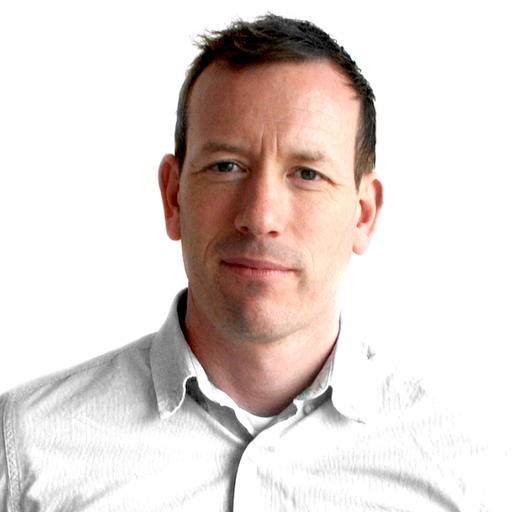
Shane McAllister
Today's Guests
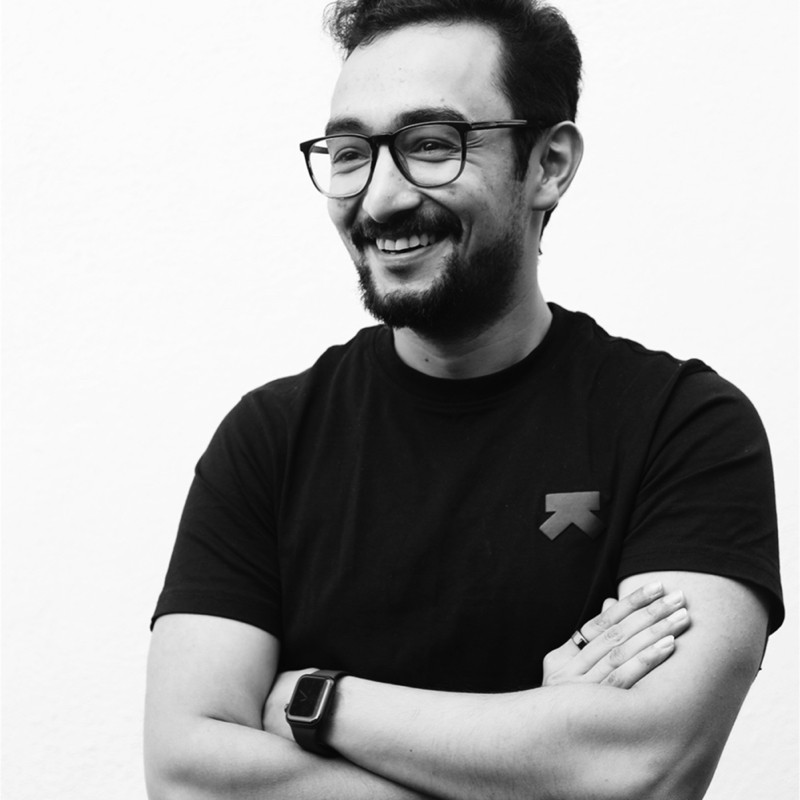
Vatsal Singhal
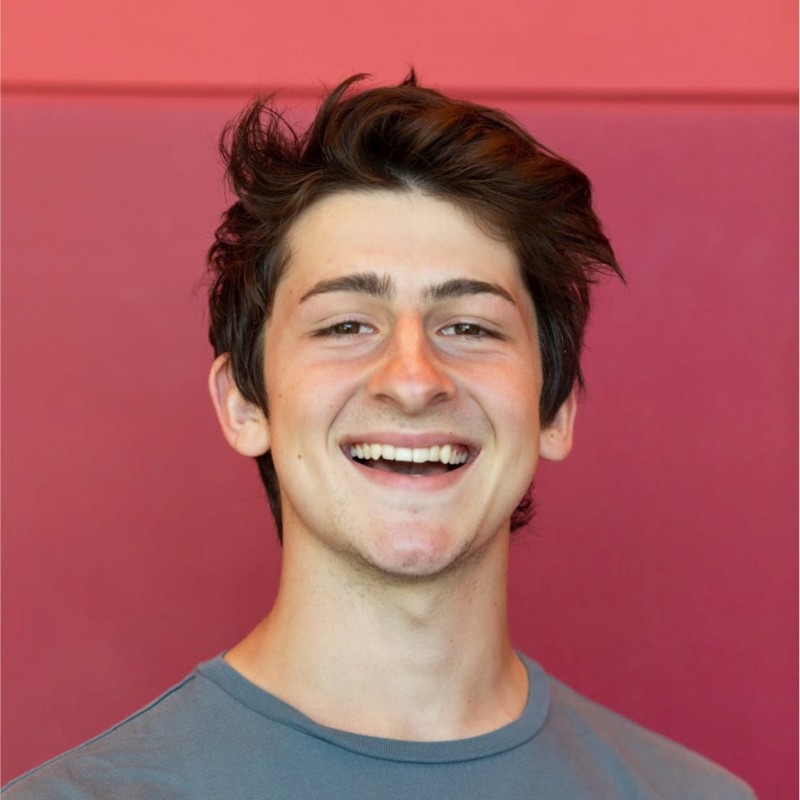
Cedric Clyburn
